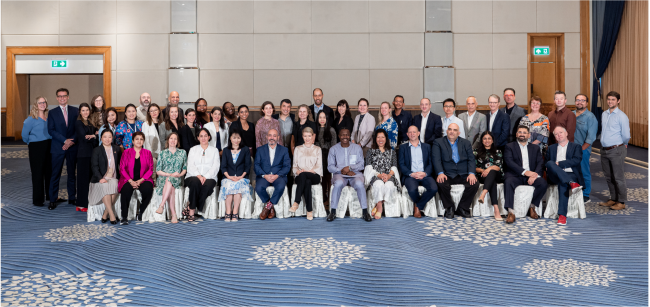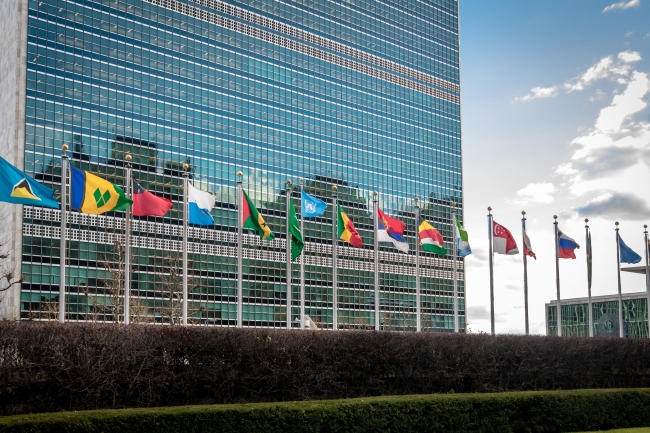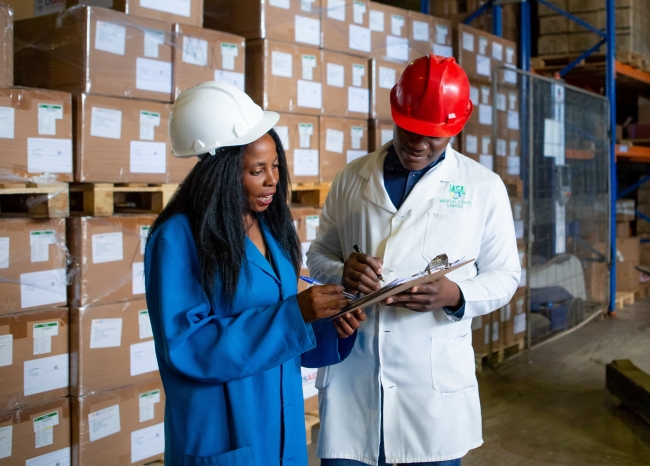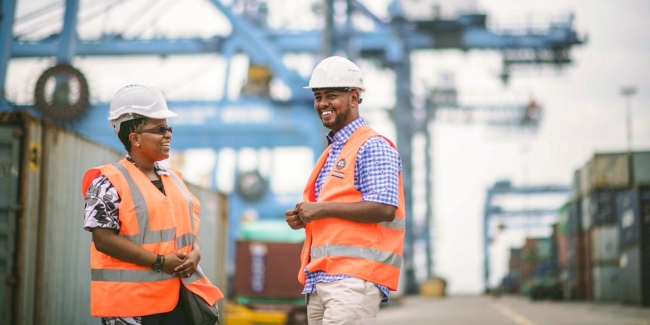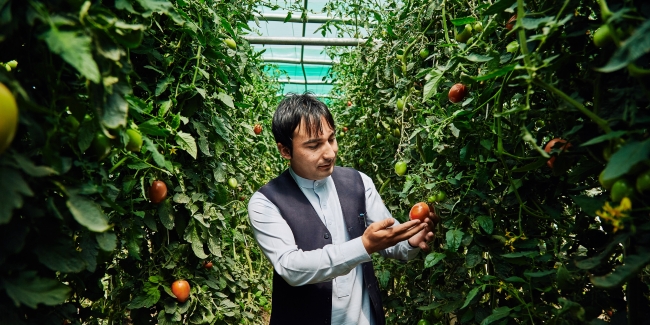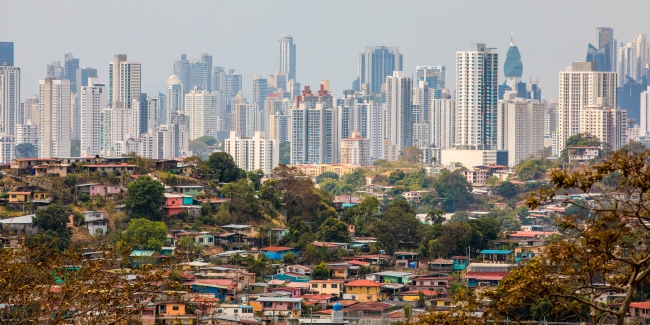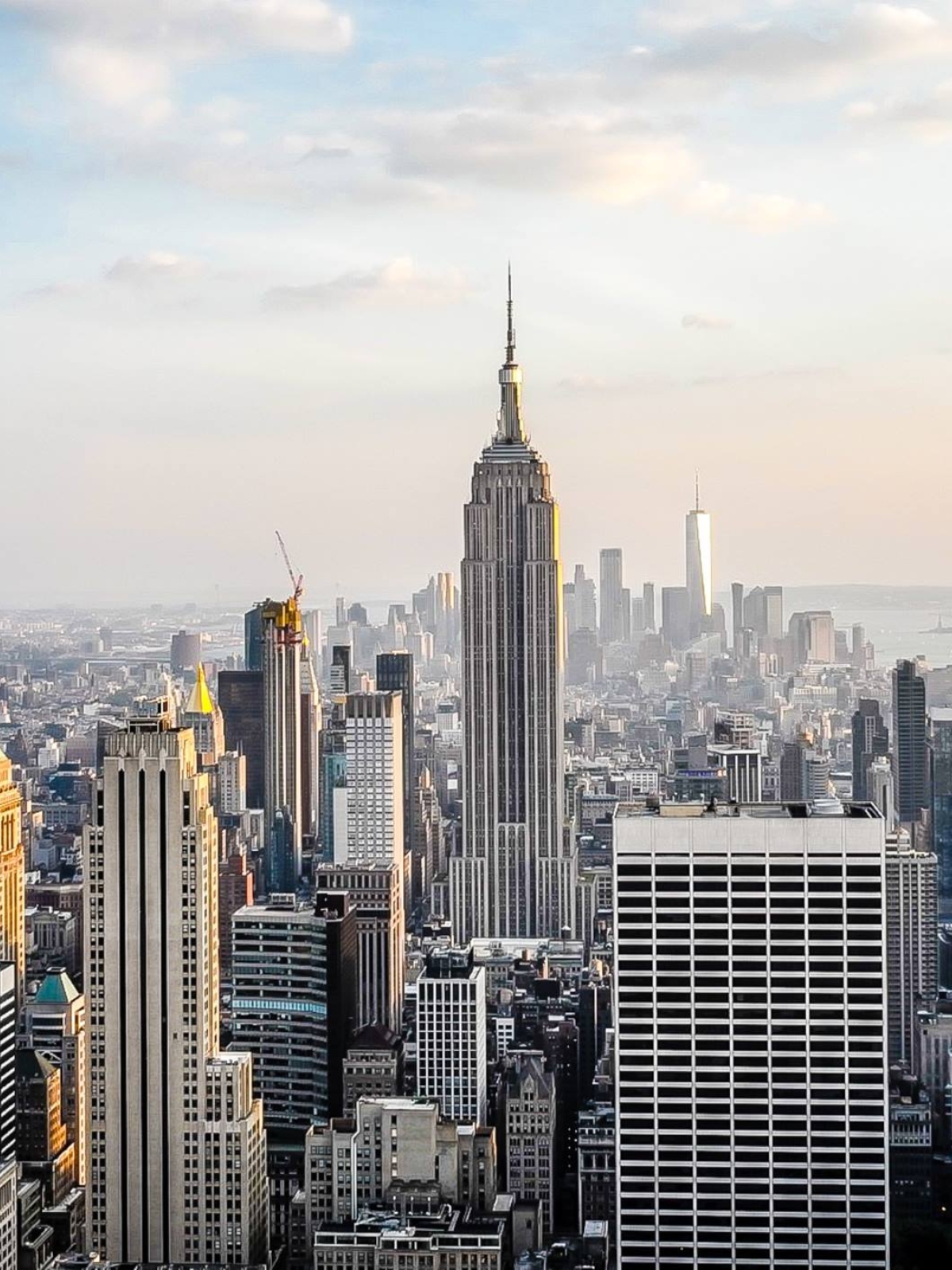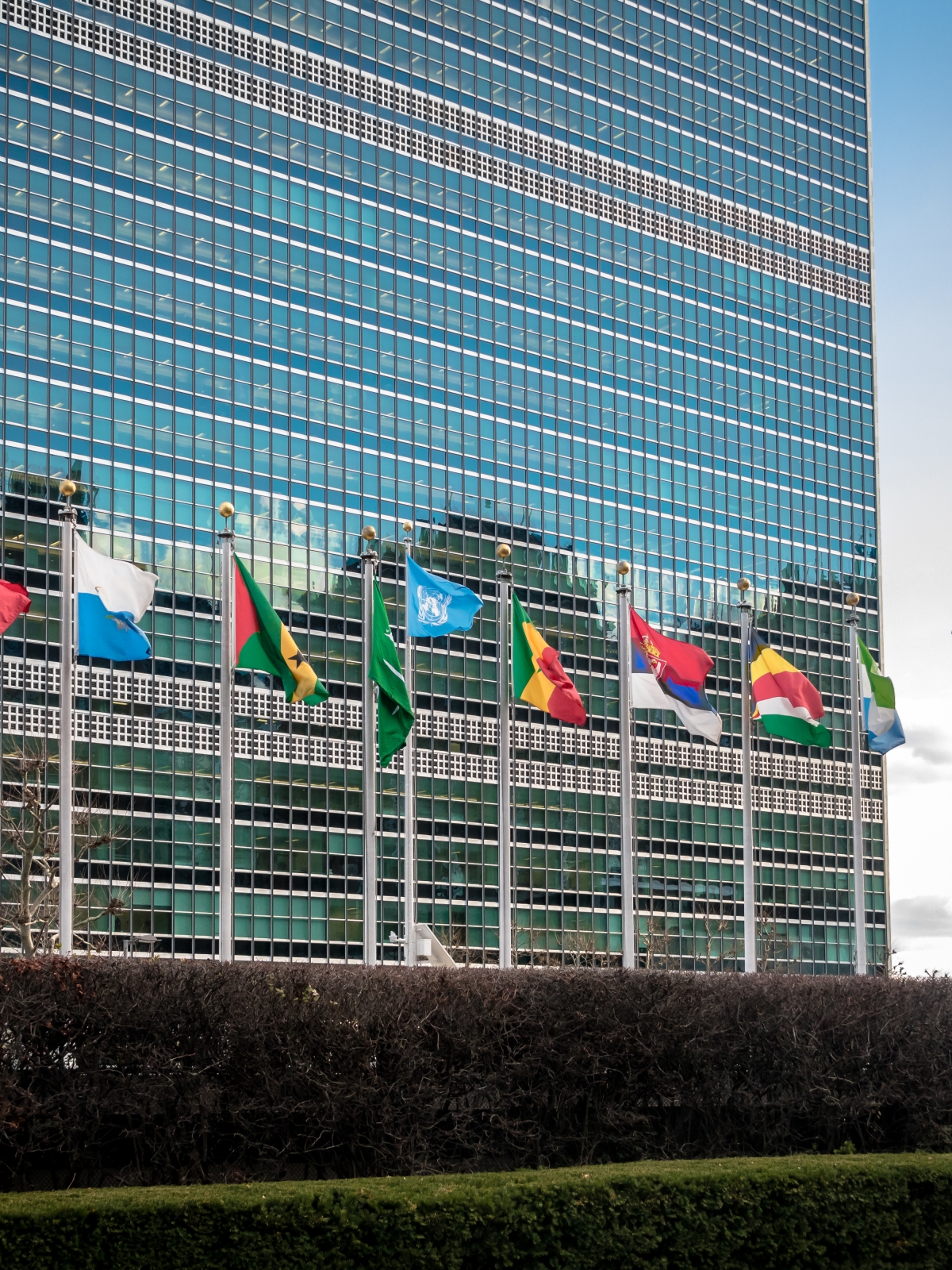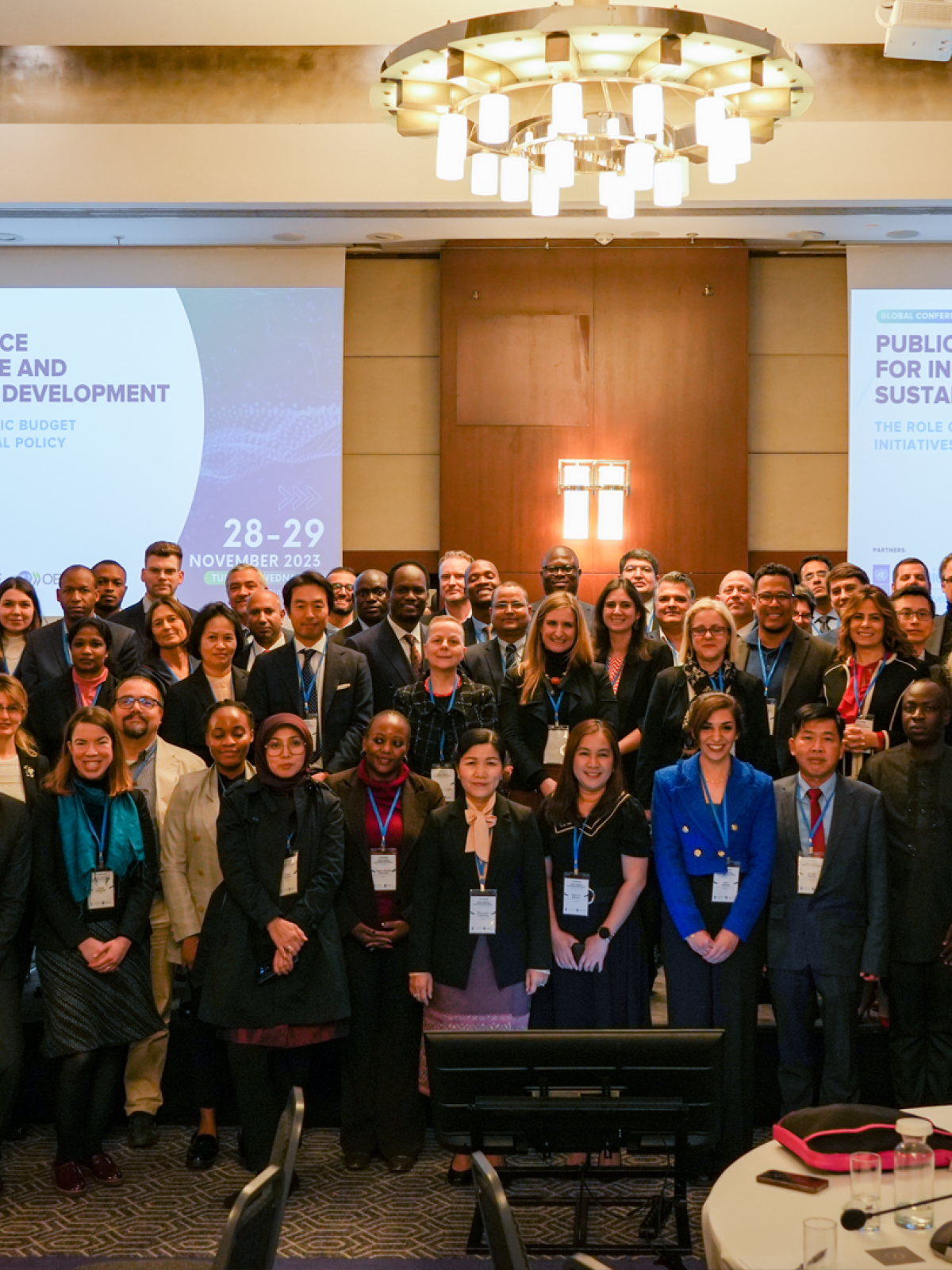29th Conference of the Parties (COP29)

Event Details
| Time | Event | Venue | About |
MONDAY, 11 NOVEMBER - WORLD LEADERS CLIMATE ACTION SUMMIT | |||
| 13:00-13:15 | Formal Launch and Opening of Pavilion | UNDP Pavilion | This side event will formally launch UNDP’s pavilion and the 50+ events that will be held over the two weeks. The pavilion is working in partnership with UNCDF and Nizami Ganjavi International Centre. |
| 13:00-14:30 | UNCDF – Stepping up to the Climate Challenge: Financial Solutions and Scalable Private Sector Engagement | UNDP Pavilion | Panelists will present the existing UNCDF climate finance delivery mechanism – the Local Climate Adaptive Living Facility – which uses performance-based payments to achieve adaptation results and offers a potential basis for scalable climate finance delivery in partnership with the private sector. |
| 13:30 – 15:00 | Energy for Growth in Africa: A Multi-Stakeholder Approach to Mobilizing Finance for Clean Energy | Italian Pavilion | Africa's energy landscape stands at a decisive moment, with unparalleled opportunities to harness its vast renewable resources and leap into a low-carbon future. However, to bridge the existing financing gap - estimated at $190 billion annually by 2030 - it is vital to mobilize strategic partnerships and external investments. This session will mark the launch of the Energy for Growth in Africa initiative, a collaborative effort endorsed by the G7 and rooted in the successful pilot of the Italy-UNDP Energy Partnership. The event will gather key government representatives, private sector leaders, development finance institutions (DFIs), and stakeholders to explore the pathways to bolster clean energy investments in Africa. |
| 15:30 - 17:00 | Launch of the Africa Climate Action Programme (AfCAP): Exploring Potential Opportunities for Implementation | Africa Pavilion | The main objective of the Side Event is to Launch of the Africa Climate Action Programme (AfCAP) and explore potential opportunities for its implementation. The event is expected to facilitate sharing of information about the need to strengthen Africa’s capacity for building climate resilient adaptive systems. Partners: African Union, UNDP |
| 17:00-18:30 | UNCDF - Financing Transboundary Organizations for Climate Change Mitigation | UNDP Pavilion | UNCDF will explore how RBOs can address climate change through sustainable financing. The Blue Peace Financing Initiative, implemented by UNCDF and the Swiss Agency for Development and Cooperation (SDC), supports RBOs in developing climate-resilient strategies. |
TUESDAY, 12 NOVEMBER – WORLD LEADERS CLIMATE ACTION SUMMIT | |||
| 11:00-12:30 | Towards a Nearly Zero-Energy Pathway for the Buildings Sector in the Balkans+ Region | UNDP Pavilion | This side event at COP29 will focus on the potential of energy efficiency to act as a key driver for sustainable economy growth and energy security in the region. It will showcase the European Union’s Green Deal agenda and its implications for the Western Balkans and Moldova in the context of building renovations and energy-efficient technologies. |
| 15:00-16:30 | Mainstreaming Climate, Peace and Security Perspectives in NDCs and NAPs: A Policy Consultation at COP 29 | UNDP Pavilion | UNDP will host a policy consultation to address the critical need for integrating climate, peace and security perspectives into National Determined Contributions (NDCs) and National Adaptation Plans (NAPs). |
| 15:00-16:30 | High-level launch event of the Annual High-Level Dialogue on Coordination and Complementarity for Loss and Damage Funding Arrangements | Meeting Room 22 | This 90-minute public-facing event co-hosted by the Fund for Responding to Loss and Damage (FRLD) and the COP29 Presidency is an opportunity to take stock of the state of the funding arrangements, including of the FRLD’s progress in its first year. This event will be the primary high-level event on Loss and Damage during COP29. |
| 15:30-16:30 | High-Level ‘Climate Finance Roundtable’ | Pakistan Pavilion, MR2, Zone C | The objective of the High-Level Roundtable is to deliberate on the challenges being faced in addressing issues, in particular climate finance. It would bring together developed and developing countries particularly those vulnerable to the devastating impacts of climate change. Through the High-Level Roundtable, emphasis on the importance of resource mobilization and innovative climate finance solutions to fulfil the needs of vulnerable developing countries. Host: Government of Pakistan, Ministry of Climate Change & Environmental Coordination |
| 17:00-19:00 | #Together4Transparency Opening High-Level Event: Celebrating the Transparency Journey | Shirvan Special Room, Zone B | This event, featuring Simon Steill and other high-level representatives from various agencies, will celebrate and recognize the efforts of frontrunner countries that have already submitted their first Biennial Transparency Reports (BTRs). It aims to generate strong momentum for timely BTR submissions and universal participation in the Enhanced Transparency Framework (ETF), demonstrating that the ETF is fully operational. Additionally, the event will highlight the importance of climate transparency for diverse stakeholders—including youth, media, and experts—committed to implementing the ETF. It will also emphasize the interconnections between improved transparency and broader sustainable development goals, such as gender equality and women’s empowerment, which support informed decision-making and policy formulation. Organizers: UNFCCC, COP29 Presidency, UNDP |
| 18:30-20:00 | Raising the ambition of urban climate action through multilevel governance | Side Event Room 1 | The side event is dedicated to the role of multilevel governance and cities, urban areas, and subnational governments in climate resilience, which includes, but is not limited to, climate mitigation, adaptation and disaster risk reduction. The event welcomes distinguished speakers from academia, international organizations, and national and subnational governments. The speakers will bring their unique insights on the topic of multilevel governance and climate resilience. The event will be divided into three sessions: session 1 will include presentations from official partners; session 1 will include a high-level segment with representatives of national governments, and lastly, session 3 will include representatives of international organizations and academia. Co-organizers: University of Venice (IUAV), UNESCO-Intergovernmental Hydrological Panel IHP, UNEP- Copenhagen Climate Center, European Commission Committee of the Regions (CoR), UN-Habitat, UNDP, The Research Council of Norway |
WEDNESDAY, 13 NOVEMBER – WORLD LEADERS CLIMATE ACTION SUMMIT | |||
| 11:00-12:30 | NGIC - Integrating Health into Nationally Determined Contributions: Healthy NDCs | UNDP Pavilion | The event will highlight the crucial interconnection between health and climate change, this shared impact on other sectors, as well as the health co-benefits of climate and health action. WHO will launch the new technical guidance: WHO quality criteria for integrating health into nationally determined contributions: healthy NDCs which national governments to raise the quality and ambition of NDCs. This event will complement the launch of this new guidance with the presentation of UNDP’s “Climate Promise” initiative, empowering participants to consider health across all key components of NDCs. |
| 11:30-12:30 | Addressing Just Transition in NDC 3.0 –learning from country experiences and integrated UN system and partner support | ILO Just Transition Pavilion | This side event seeks to discuss national experiences in addressing just transition in Nationally Determined Contributions (NDCs) and highlight the UN system's and partners’ collective efforts in supporting countries to integrate just transition into the third generation of NDCs (NDC3.0). |
| 12:00-13:00 | NDCs 3.0 preparation and implementation: Lessons from the Regions | Room 1 | This event will highlight key lessons and best practices from various regions, in support of countries in preparing, communicating, and implementing more ambitious NDCs by 2025. It will allow countries sharing their experiences in crafting new NDCs and discussing challenges and opportunities with development and implementation partners. Additionally, the event will present outcomes from the Regional NDC 3.0 Forums. Partners: UNFCCC, UNEP, UNDP, and the NDC Partnership |
| 13:00-14:00 | Accelerating the Just Energy Transition in Small Island Developing States (SIDS) – Administrator to Participate | UNDP Pavilion & Pavilion Office | This COP29 side event organized by AOSIS and UNDP will highlight the opportunities that the just energy transition offers for Small Island Developing States (SIDS). Clean, affordable, and reliable renewable energy systems have become both a necessity for resilience and an opportunity for growth by transforming economies and catalyzing new development sectors. |
| 13:30-14:30 | Overcoming Challenges in NDC Design in the Caribbean: Success Stories from Small Islands Developing States (SIDS) Towards Inclusive and Implementable Nationally Determined Contributions | Room 4 | This event will highlight challenges and success stories from Caribbean Small Islands Developing States (SIDS) in NDC implementation. It will also showcase the robust support ecosystem available within the region and provide practical guidance on integrating diverse sectors to enhance NDCs' effectiveness and impact. Partners: UNFCCC, RCC Caribbean, NDC Partnership, Climate Promise |
| 15:00-16:30 | United to accelerate NDC implementation: Streamlining global support for high-integrity carbon markets | UNDP Pavilion | This event will showcase the collaborative efforts of the World Bank, UNDP, GGGI, A6IP, IC-VCM and VCMI in supporting the development of high-integrity carbon markets. Recipient countries have challenges with the different requirements and streams of support. Guided by their experience, to be presented by Ghana and Costa Rica, the goal of this collaborative effort is to reduce fragmentation, achieve economies of scale, and promote both developing countries access to additional financial resources from the private sector for NDC implementation. |
| 16:30-17:30 | Global Champions for Locally Led Adaptation: 2024 Leaders Event | Resilience Hub | The GCA COP29 Leaders Event spotlights community-driven adaptation solutions, celebrating achievements and awarding the 2024 Local Adaptation Champion laureates. It emphasizes scaling locally-led action through global support, critical to building resilience among climate-vulnerable communities. |
| 17:00-18:30 | UNCDF - Leveraging Climate Finance for Sustainable Food Systems: Accelerating Food Security in Africa as a Pathway to Resilience | UNDP Pavilion | The side event will showcase the potential of climate finance and public-private partnerships in advancing sustainable, climate-resilient food systems, with the Africa Adaptation Initiative (AAI) Food Security Accelerator as a practical example of scaling food security solutions across the African continent. The event will explore how blended finance solutions, policy frameworks, and technology solutions can bridge the gap between climate resilience and food system sustainability, highlighting successful collaborations between the private sector, government bodies, and development organizations. |
THURSDAY, 14 NOVEMBER – FINANCE, INVESTMENT & TRADE THEMATIC DAY | |||
| 9:00-11:00 | High-Level Launch of the Baku Initiative for Climate Finance, Investment, and Trade (BICFIT) | Presidency Area, SE2 | This event aims to establish a collaborative platform for developing a comprehensive action plan on the climate finance, investment and trade nexus in support of the UNFCCC and the Paris Agreement. Speakers: COP 29 Presidency, UNDP, UNCTAD |
| 9:00-10:30 | Accelerating Adaptation Finance – Emerging Experience and Tools | UNDP Pavilion | Adaptation finance needs and costs for developing countries are estimated at US$215 to $387 billion annually based on submitted NDCs and NAPs, presenting an annual gap of US$194 to $366 billion globally (UNEP 2023). The main objectives of this event are: Showcase emerging experiences of developing countries in mobilizing and leveraging adaptation finance; Present adaptation finance and investment guidance that have/are being produced by various development organizations, including UNDP. |
| 10:30-12:00 | NGIC - Promoting and Supporting Women’s Leadership for Effective Climate Action and Environmental Security | UNDP Pavilion | At COP29, the Georgetown Institute for Women, Peace and Security (GIWPS) and the Nizami Ganjavi International Center (NGIC) will convene a panel of experts to explore best practices for promoting women’s leadership in environmental protection, adaptation and climate interventions, and how financing mechanisms can better support their entrepreneurship and innovation for climate-smart solutions in their communities and beyond. The aim of the event will be to demonstrate the link between women’s leadership with better climate and environmental outcomes and discuss how they can be better resourced, supported, and reflected in climate policy. |
| 10:30-11:30 | Adaptation Innovation Marketplace (AIM) Flagship event – “Global Vision, Local Action: Financing the Future of Locally Led Adaptation | Resilience Hub | Local communities are leading innovative climate solutions but face barriers like limited finance and technical expertise. This session, co-hosted by UNDP, GRP, Adaptation Fund, and partners, will spotlight successful initiatives and announce new investments for adaptation-focused founders and social enterprises. |
| 11:30-12:30 | Accelerating South-South and Triangular Cooperation Through Collaborative Innovation and Building Coherent Portfolios of New Solutions: UNOSSC South-South and Triangular Cooperation Solutions Lab | GORD Pavilion | This event seeks to strengthen South-South and Triangular Cooperation (SSTrC) by highlighting the potential of collaborative innovation, coherent solution portfolio building, and building resilient development pathways. As a key milestone in the operationalization of the UNOSSC’s South-South and Triangular Cooperation Solutions Lab, launched together with Gulf Organisation for Research and Development, World Food Programme, International Atomic Energy Agency, United Nations Economic Commission for Europe, Masdar City and Zayed International Foundation for Environment, this event aligns with the Lab’s mission to address complex development challenges through co-design, incubation, financing and scaling of innovative solutions, all contributing to the 2030 Agenda for Sustainable Development. |
| 11:30-13:00 | Where Are Governments with Their Climate Action? First Results of the Climate Scanner Assessment | Azerbaijan Pavilion | The Working Group on Environmental Auditing of the International Organization of Supreme Audit institutions (INTOSAI), the Federal Court of Accounts (TCU) of Brazil, as chair of the INTOSAI, and UNDP invite to join for a panel discussion at COP29 on the status of climate action and the role of SAIs in enhancing climate governance. The panel discussion will explore SAI’s experiences, key lessons learned from the assessment framework, and ways to strengthen effective climate governance and accountability at the national level. |
| 11:30-13:00 | Advancing Gender Equality and Human Rights: Climate Finance for Gender-Transformative NDC 3.0 | Side Event Room 4 | The session will explore the enabling conditions needed to advance gender equality, integrate SRHR, and strengthen inclusive governance structures. This includes rights-based approaches in governance structures, fostering women´s leadership, promoting their economic empowerment through green jobs and ensuring a just and equitable transition. Additionally, the session will focus on capacity development, climate finance and gender-responsive budgeting and planning processes, in the various climate national policies, while extracting positive commitments from various stakeholders on the next cycle of NDC submissions. Partners: UNFPA, OHCHR, UNDP |
| 11:30-13:00 | Local action, global goals: UN support towards cities in the NDCs | Side Event Room 6 | Urbanization and climate change are interlinked. Cities lead climate action but are also major greenhouse gas emitters. Today, only 27% of NDCs highlight urban priorities. This One UN event will discuss boosting urban content in NDCs for more effective multi-level action on the road to NDC 3.0. |
| 12:00-13:00 | NGIC - Green Digital Action – Strengthening Collaborative Power for a Sustainable Digital Tech Industry | UNDP Pavilion | Inauguration of the Green Digital Action track at COP29 with a high-level opening session. By highlighting technology's role in environmental solutions and showcasing successful collaborations, it will inspire active participation in discussions and workshops aimed at driving sustainable transformation. This session paves the way for a dynamic track fostering dialogue, innovation, and collaborative action for a greener digital future. |
| 12:00-13:00 | Mobilizing Private Sector Investments for Climate Adaptation: A World Café on Innovation and Learning | UNIDO Pavilion | Supported by the Global Environment Facility (GEF) and in partnership with UNIDO, Global Adaptation and Resilience Investment network) (GARI) , Knowledge and Innovation Community EIT Climate-KIC, UNEP Finance Initiative (UNEP FI). The Climate Adaptation Innovation Learning (CAIL) side event will engage participants in an interactive World Café format to explore opportunities for private sector involvement in climate adaptation. Through three thematic roundtables led by expert organizations, attendees will share insights and strategies on investment funds, MSME acceleration, and impact measurement, with the aim of fostering collaborative learning and actionable ideas to enhance adaptation financing in developing countries. |
| 13:00-14:30 | NGIC - Transparency, Innovation and Regulatory Reform to address the Nexus of Forced Labor and Damaging Environmental Impacts | UNDP Pavilion | Creating transparency in supply chains (e.g., mandatory reporting, supply chain audits and ethical sourcing standards, etc). Fostering innovation with emphasis on industry, NGOs and government officials to drive technology to enhance supply chain visibility and traceability. Advocating for regulatory reform. |
| 14:00-15:00 | Advancing Sustainable Finance Across the Globe: Roadmap Towards Interoperability and Comparability of Sustainable Finance Taxonomies | Azerbaijan Pavilion, Room A | The Central Bank of Azerbaijan, as the central bank of the COP29 host country, has initiated the "Roadmap for Advancing Interoperability and Comparability of Sustainable Finance Taxonomies" in collaboration with the IFC-supported Sustainable Banking and Finance Network (SBFN), the International Platform on Sustainable Finance (IPSF), and the United Nationx Development Programme (UNDP). The objective is to connect and coordinate various ongoing efforts related to sustainable finance frameworks and operationalize them through clear, practical, and coordinated actions. The event will provide a high-level platform to launch the “Roadmap for Advancing Interoperability and Comparability of Sustainable Finance Taxonomies”. Aiming to address the challenges and opportunities arising from the rapid development of sustainable finance taxonomies across various jurisdictions, the event outlines commitment of the stakeholders to support a coordinated global approach to sustainable finance. Participants: Governor Taleh Kazimov, Central Bank of Azerbaijan; Makhtar Diop, Managing Director, IFC, Abdallah Al Dardari, ASG, Regional Bureau for Arab States/UNDP; Jan Dusik, DDG, Directorate-General for Climate Action, EC; Eric Usher, Head UNEP FI; Vera Economou, Sustainable Finance Lead, Raiffeisen Bank Int’l; Sean Kidney, CEO, Climate Bonds Initiative |
| 14:30-15:15 | Transparency in Portuguese – Status of Preparation and Submission of Biennial Transparency Reports by Lusophone Countries | Portugal Pavillion | The side event aims to share experiences from Lusophone countries more advanced in preparing their first Biennial Transparency Report (BTR), with the goal of promoting learning for those taking initial steps in transitioning to the Enhanced Transparency Framework (ETF). Organizers: Portugal, UNDP, Mozambique and Guinea-Bissau |
| 15:00-16:30 | Supporting Climate Finance in Africa | UNDP Pavilion | UNDP’s Rome Centre is implementing two flagship initiatives on climate finance in Africa: the Platform for Investment Support and Technical Assistance (PISTA) and Energy for Growth in Africa. |
| 15:15- 16:45 | Book Launch, 2024 Stories of Resilience: Lessons from Local Adaptation Practice | Multilateral Climate Funds Pavillion | Lessons from Local Adaptation Practice: The Stories of Resilience publication is an annual series by the Global Center on Adaptation, showcasing best practices, lessons learned, and inspiring examples from locally led adaptation (LLA) initiatives worldwide. The 2024 launch event will bring together climate finance providers and recipients to discuss strategies for scaling LLA through systemic change and mutual accountability. The session will feature key contributors from global institutions, exploring how adaptation finance can more effectively reach vulnerable communities in alignment with the COP’s focus on the Climate Finance. |
| 16:30- 17:30 | High‐level event: Private sector engagement in implementing the NDCs including through Article 6 | UNFCCC Pavilion | This side event aims to explore the role of the private sector in developing and implementing NDCs and how the private sector can play a meaningful role in delivering economic opportunities and unlocking finance on the ground. The event will also discuss ways to enhance public‐private partnerships for NDC investment and implementation, discuss mechanisms to boost private sector engagement, identify challenges, including those related to Article 6, and examine how enabling environments, considering national and local contexts, can enhance private sector contributions to climate action. |
| 16:45-18:15 | NDC 3.0 and Beyond: Reflecting National Needs and Priorities in Ambitious and Implementable Climate Action | Side Event Room 5 | This side event will provide a real-time gauge of where the world stands on NDC progress and expectations for 2025 - through data and experiences from around the world. It will include stories and lessons learned on advancing climate ambition amidst an increasingly complex and polarized world. UNDP, UNEP, UNFCCC, NDC Partnership |
| 17:00- 18:30 | COP Simulation | UNDP Pavilion | |
| 17:45 | NGFS Flagship Event | German Pavilion | A high-level panel on mobilizing trillions for climate finance. Organizer: Deutsche Bundesbank |
FRIDAY, 15 NOVEMBER – ENERGY/PEACE, RELIEF & RECOVERY THEMATIC DAY | |||
| 09:00-10:30 | Nurturing Decision Makers’ Expertise for Climate Resilience and Peace: Launch of the Climate Policy Finance for Peace Network | UNDP Pavilion | Unveiling the first platform dedicated to building capacities for climate policy; finance in conflict – affected settings, promoting peace and security through integrated climate solutions. |
| 09:00-10:00 | All hands on deck: Mobilizing UN-wide support for ambitious NDCs 3.0 | Special Event Room 1 | The event will provide insights from UN agencies on the UN-wide coordinated support on the development of NDC3.0 going forward. Stemming from the UN Secretary-General’s statement that ambitious NDCs are a priority for the UN System and underscored by the COP Presidencies Troika (UAE, Azerbaijan and Brazil) who have called for scaled-up support for NDCs, a UN-wide offer to support developing countries in their revision and enhancement efforts is now in effect. The offer draws from the UN’s broad reaching expertise across critical issue areas, its trusted relationship as a neutral partner, and its ongoing engagement on the broader 2030 Agenda. Organizers: UNDP, UNFCCC, NDC Partnership |
| 09:30- 11:00 | Closing the financing gap to address urgent climate adaptation challenges | EIB-Benelux Pavillion | This high-level meeting at COP 29 aims to further the dialogue on the climate emergency, the need and available options for innovative financing solutions to implement effective adaptation strategies. The event will serve to highlight the complementarity of national adaptation planning, investment plans and financing mechanisms, and the enabling conditions necessary for adaptation progress. |
| 11:00-12:30 | NGIC - The Gender, Climate and Security Nexus: Environmental Destruction in Conflict-Affected Settings and the Role of Women in Conservation and Restoration Efforts | UNDP Pavilion | This event will feature experts from governments, international organizations, and civil society to highlight the gendered environmental impacts at the nexus of conflict and climate change in Ukraine and Colombia. The panel will explore the specific consequences of conflict related environmental destruction on women and promote the vital role women can and must play in the protection and restoration of the environment post conflict in order to strengthen policy and practice. |
| 13:00-14:30 | Just Transition in Eurasia: People at the Center for Successful Decarbonization | UNDP Pavilion | It emphasizes reimagining economic structures and fostering trustful multi-stakeholder collaboration to ensure no one is left behind as economies in Eastern Europe, Central Asia, and Southern Caucasus transition to low-carbon economy and society. Pending final agreement by the World Bank directorate, the event will also signal multilateral partnership to accelerate and speed up the Just Transition in the region. |
| 15:00-16:30 | Clearing a Path: Mine Action for Climate Resilience and Sustainable Development | UNDP Pavilion | This event will bring together international experts, government representatives, and environmental leaders of Azerbaijan to discuss how mine action supports climate resilience, sustainable land use, and community safety |
| 16:00-17:00 | Roadmap to NDC3.0 with focus on integration of gender equality and social inclusion | Uzbekistan Pavilion | During the event, panelists will first explain the evidence around the NDC2 stocktaking for Uzbekistan supported by UNDP, focusing on the key gaps and needs identified. The formulated Roadmap for NDC3.0 development will be also discussed and justified as the opportunities for integrating social inclusion and gender equality focused on women, youth and other vulnerable groups, strengthening institutional coordination, ensuring just energy transition, and consistency with the nature (biodiversity conservation) related national targets (NBSAP) with the NDC targets. |
| 17:00-18:30 | Roadmap to NDC 3.0 – Uzbekistan | UNDP Pavilion | Based on NDC stocktaking for Uzbekistan, key gaps and needs identified. Roadmap is formulated for NDC3.0 development with focus on integration of social inclusion and gender equality, strengthening institutional coordination, just energy transition, and consistency with NBSAP. |
| 18:30-20:00 | NGIC - High Level Panel on Actions and Partnership to Accelerate Financing of Green Energy Projects | ||
| 19:00-20:15 | Showcasing Collaborative Impact for Transparency: CBIT-GSP and Partners in Action | Shirvan Meeting Room, Zone B | This side event will focus on how CBIT-GSP support has strengthened countries' transparency capacities, highlighting successful partnerships with other major transparency support providers such as UNDP, FAO, UNFCCC, IGES, and US-EPA. By facilitating cooperation, these collaborations have catalyzed progress, helping countries build the capacity necessary to meet the Paris Agreement's transparency provisions. Organizers: UNEP CCC CBIT-GSP, UNDP, UNFCCC |
SATURDAY, 16 NOVEMBER – SCIENCE, TECHNOLOGY, INNOVATION/DIGITILISATION THEMATIC DAY | |||
| 10:00-11:00 | Side Event on transparency: Challenges and opportunities of transparency for the implementation of NDC 2.0 and NDC 3.0 | Senegal Pavillion | This side event will explore transparency challenges and opportunities in implementing NDC 2.0 and 3.0, featuring insights from Senegal's journey in building effective transparency systems. UNDP will also outline its support options, including technical assistance and capacity building, to help countries strengthen data collection and reporting for more accountable climate action. Organizers: Senegal, UNDP, UNDP Country office in Senegal |
| 11:00-12:30 | Accelerating Green Transition with Digital Public Infrastructure | UNDP Pavilion | The side event will explore how Digital Public Infrastructure (DPI), which has already demonstrated remarkable impact in sectors such as health and education can be harnessed to speed up climate adaptation, mitigation and disaster risk resilience in countries. |
| 13:00-14:00 | Addressing Loss and Damage in Small Island Developing States Climate Plans | UNDP Pavilion | The objective of this technical side event is to provide a space for discussion on the role of loss and damage in existing and future SIDS climate plans, building on the main findings from UNDP’s publication “Snapshot of Loss and Damage in SIDS under the Climate Promise”. |
| 13:00- 13:45 | Digital Transformation for NDCs – from Foundations to Future-Ready AI | WGEO Pavilion | This panel discussion convenes representatives from three countries, each at a unique stage in their digital transformation journey for NDCs. Panelists will share experiences on leveraging digital tools for climate action, including NDC tracking, digital registries, and MRV (Measurement, Reporting, and Verification) systems. |
| 15:00-16:30 | NGIC - Leveraging Science, Technology and Innovation for Climate Solutions: Enhancing International Collaboration for a Sustainable Future | UNDP Pavilion | The objective of the side event is to showcase how science, technology, and innovation including nuclear technologies can enhance global efforts to combat climate change on mitigation, adaptation and monitoring. Nuclear science and technology are unique in the scale and breadth of their applications. |
| 15:15-16:45 | Innovation in Climate Adaptation: Lessons and New Horizons with the Adaptation Fund Innovation Accelerator | Multilateral Climate Funds Pavillion | This session showcases the Adaptation Fund Innovation Accelerator, highlighting lessons from UNDP and UNEP-CTCN, and exploring new partners’ strategies, with WFP, UNIDO, and UNEP-Phase II. The discussion aims to enhance collaboration and locally-led adaptation efforts. |
| 15:30-16:30 | Accelerating Progress on National Adaptation: Leveraging National Adaptation Plan processes for NDC enhancement | NDC Partnership Pavilion | Almost all developing countries have a national adaptation plan (NAP) process underway. This event will highlight significant milestones achieved on national adaptation planning globally, and the opportunity to reflect this progress – alongside gaps and needs – in the adaptation chapter of updated NDCs. |
| 17:00-18:00 | Child-Sensitive NDC 3.0 Experiences from Europe and Central Asia | NDC Partnership Pavilion | A roundtable discussion on child-sensitive NDC 3.0 focusing on integrating child rights and well-being into climate action plans. The event will build on outcomes from the regional NDC 3.0 workshop in Istanbul 3-6 Sept 2024 and bring Heads of Delegations, NDC Partnership, UNICEF and UNDP with youth climate envoys together to deliberate on NDC 3.0, exchange insights on national actions to acknowledge the disproportionate impact of climate change on children within NDC 3.0. The session will showcase examples of referencing children in NDC 3.0, and highlight the importance of climate change education, environmental health, and social protection in strategies for climate change adaptation and mitigation. Partners: UNICEF, UNDP |
MONDAY, 18 NOVEMBER – HUMAN CAPITAL/CHILDREN & YOUTH/HEALTH/EDUCATION | |||
| 08:30-10:00 | Ministerial Roundtable on Global Climate Transparency | Blue Zone, Special events area, Mugham Room | The Ministerial Roundtable on Global Climate Transparency will serve as an opportunity to reinforce political commitment to transparency of climate action. Through stock take of progress in preparation and submission of BTRs, it will enhance recognition that BTRs can make impactful contributions and address strategic and practical aspects of ETF. The event will commend those who have submitted their BTRs and acknowledge the efforts of Parties committed to timely submissions. The COP 29 Presidency will introduce the Baku Declaration on Global Climate Transparency for endorsement, which will become another milestone in operationalization of the BTP and send positive signals aimed at encouraging Parties to deliver on their transparency obligations. Organizers: the COP 29 Presidency, UNFCCC, UNDP Co-hosts: Japan, the Republic of South Africa, the United States of America, the Italian Republic, the Republic of Kazakhstan |
| 10:30-11:30 | Country Perspectives on Carbon Registries: Lessons, Challenges, and Opportunities Post-COP29 | UNFCCC Global Innovation Hub Pavilion | The event is designed to convene country representatives for a focused discussion on key considerations in the operationalization and development of registry systems. The session will highlight both the barriers that countries face—such as technical capacity, regulatory hurdles, and financing—and the opportunities for increasing efficiency, streamlining access, and enhancing transparency. |
| 11:00-12:30 | Enhanced Transparency for Tracking NDC under the Forestry and Other Land Use (FOLU) Sector | UNDP Pavilion | Cambodia aims to prepare and submit NDC3.0 to the UNFCCC in 2025, building on lessons from NDC2.0 and national policies. The FOLU sector is crucial, requiring support for transparency and monitoring of ecological, social, and economic factors. |
| 13:00-14:30 | Financing and Accelerating Youth-Led Breakthroughs for Global Climate Action | UNDP Pavilion | This event will foster partnerships and collaboration to scale solutions that focus on financing and actionable strategies for local and global impact. Climate change represents the biggest threat to sustainable development and is causing widespread, unprecedented impacts that disproportionately burden the poorest, marginalized and most vulnerable, including young people. |
| 15:00-16:30 | NGIC - Developing Communities Through Creative Climate Financing | UNDP Pavilion | Malawi’s situation and experience with climate change-induced disasters has both a historical and environmental management story. To address these issues, Her Excellency Dr. Joyce Banda as the Pan African Climate Change (Loss and Damage) Champion, the Community Development Initiative-CDI, iRISE Africa and the community have been implementing a unique climate financing model to ensure community development, create community resilience and enhance environmental management through afforestation. |
| 15:30-17:00 | The Future of Climate Change Education: An Intergenerational Dialogue | Qatar Pavilion | |
| 17:00-18:30 | Leveraging Synergies on Nature-Based Solutions and Climate Action for NDC and NAP Implementation in Agrifood Systems | UNDP Pavilion | This event, co-organized with FAO and UNEP, explores approaches and best practices for harnessing synergies between nature-based solutions and climate adaptation for NDC and NAP implementation. It features a panel discussion with representatives from governments, international organisations and civil society. |
TUESDAY, 19 NOVEMBER – FOOD, AGRICULTURE & WATER THEMATIC DAY | |||
| 9:00-10:30 | Achieving Global Goal on Adaptation – Opportunities of National Adaptation Planning Process | UNDP Pavilion | According to the recent decisions on the Global Stocktake and the Global Goal on Adaptation of the Paris Agreement, all Parties should have in place national adaptation plans, policy instruments, and planning processes and/or strategies by 2025 and have made progress on implementation by 2030. Four country representatives at various stages of their NAP process to share their adaptation MEL frameworks. |
| 9:30-10:00 | From Target to Reality: New Global Guidelines to Achieve the SDGs | ISO Pavilion | Fireside chate between ASG Neto and Silvio Dulinsky, ISO Deputy Secretary-General. This session is an opportunity to demonstrate how partnering to create practical tools can help move from SDG alignment to meaningful action by public and private sector organizations. Our objective is to motivate organizations to leverage these tools to embed sustainable development into their core operations and decision-making processes for their short and long-term benefit. Participants: Silvio Dulinsky, ISO Secretary General; Marco Neto, ASG/Bureau for Policy and Programme, UNDP |
| 11:00-12:30 | National Adaptation Plan by 2030 in Vietnam | UNDP Pavilion | This High-Level Event will provide a platform for Viet Nam to share with the global community its climate challenges, especially its vulnerability to future climate loss and damage. The event also highlights and socio-economic opportunities arising from introducing effective Blue and Green Nature based Solutions for uptaking new adaptation ambitions. |
| 13:00-14:30 | NGIC - Best Buys for Climate Action: Investing in Agricultural Innovation | UNDP Pavilion | This session will highlight some of the available investment opportunities, or best buys, for a range of funds and funders at the intersection of climate adaptation, innovation, food security, with a focus on the global south. We may also decide to include a link to the Technological Mechanism of the UNFCCC, to try and connect this to more formal processes. |
| 15:00-16:30 | Elevating Agricultural Adaptation: Mobilizing Climate Finance to Support Smallholder Farmers | UNDP Pavilion | There is a pressing need to bridge the financing gap by mobilizing resources from various sources, including governments, private sector investors, international donors and financial institutions. This official COP 29 side event will bring together key stakeholders from finance, agriculture, and climate sectors to discuss and mobilize funding for climate adaptation in agriculture. |
| 17:00-18:30 | Reinforce Climate Resilience Through Energy-Food-Water Nexus in Syria | UNDP Pavilion | The event titled “Reinforce Climate Resilience through Energy-Food-Water Nexus in Syria” aims to explore integrated approaches to addressing Syria’s multifaceted challenges, focusing on the interconnections between energy, food, and water systems. In a context where climate change exacerbates existing vulnerabilities, particularly in conflict-affected areas, this event will highlight how adopting a nexus approach can enhance resilience and sustainability. |
WEDNESDAY, 20 NOVEMBER – URBANISATION/TRANSPORT/TOURISM THEMATIC DAY | |||
| 9:00-10:30 | Urban Finance for Climate Action: Scaling Innovation & Partnership in Secondary Cities in Eurasia | UNDP Pavilion | A dialogue session focused on unlocking financing for climate action in cities, leveraging partnerships and innovative tools co-developed between EU/DG NEAR, UNDP and Ove Arup and other stakeholders, to support sustainable urban development and transformation in the Eastern Partnership region. |
| 09:00-10:00 | Toolkit for Gender-responsive National Communications and Biennial Transparency Reports in Compliance with the Enhanced Transparency Framework of the Paris Agreement | Shirvan Meeting Room | The Capacity-Building Initiative for Transparency - Global Support Programme (CBIT-GSP), in collaboration with UNDP is developing a toolkit for integrating gender in BTR and NC reporting. The overarching objective is to support countries in integrating gender considerations into climate transparency frameworks. This side-event aims to consult with Parties in a focus group session, to confirm the structure of this new toolkit for integrating gender in BTR and NC reporting, allowing Parties to share experiences and best practices and co-create solutions to the most pressing barriers to gender reporting. Organizers: UNEP CBIT-GSP, UNDP |
| 9:30-11:00 | Launch of the G7 Adaptation Acceleration Hub | Italian Pavilion | The G7 Presidency is proposing a high-level event at COP29 to officially launch the G7 Adaptation Accelerator Hub. The objective is to showcase the progress made since the Hub’s inception, while broadening support from countries, partners, and donors. Host: Government of Italy |
| 13:00-14:30 | NGIC – Women are the Solutionaries for Climate Crisis’ | UNDP Pavilion | The panel will address obstacles and opportunities in engaging women as the climate crisis solutionaries in different spheres – agriculture, water, food security, alternative energy and more. Indigenous women play a crucial role in sustainable agriculture, food security and they continue preserving the planet. There is a critical need to create more effective ways of engaging them providing access to resources, decision making power and accountability mechanisms. |
| 15:00-16:30 | Anti-corruption and Climate Finance to Accelerate Efforts Towards Climate Action | UNDP Pavilion | The side event seeks to highlight the importance of mobilizing sufficient climate finance to achieving global climate goals, while bringing in strong anti- corruption measures to ensure its effectiveness. As the new Quantified Goal on Climate Finance takes shape, transparency, accountability, and governance are critical in preventing misuse and ensuring funds reach vulnerable nations for mitigation, adaptation, and resilience. |
THURSDAY, 21 NOVEMBER – NATURE & BIODIVERSITY, INDIGENOUS PEOPLE/GENDER EQUALITY / OCEANS & COASTAL ZONES | |||
| 9:00-10:30 | Ethiopia’s Green Legacy: Signal of possibilities in Reverting Climate Change and Building Green Future | UNDP Pavilion | GLI is not mean simply planting a tree, it has significant on all rounded developmental activities of the country that leads to prosperity. It is a great impact for the achievement of Sustainable Development Goals (SDGs). It can tackle deforestation and climate change. The Green Legacy Initiative ensured that a total of 4 billion, 5 billion, and 6 billion, 6 billion, 6.5billion and 7.5 billion seedlings were planted in 2019, 2020, 2021, 2022, 2023, 2024 respectively. |
| 9:00-10:30 | National Adaptation Plans (NAPs) and Regional Approaches for resilient Caucasus Mountains and Beyond | Azerbaijan Pavilion | Showcase the importance of transboundary and regional exchange in addressing shared climate change risks (e.g. drought, erosion, flooding) and enhancing resilience in the regions through National Adaptation Plans, including in the context of Caucasus Mountain ranges to foster dialogue among stakeholders and exchange of regional climate resilience knowledge and practices. |
| 10:15- 11:15 | Accelerating climate action in agriculture and land use: The Climate Action Review (CAR) Tool | PCCB Pavilion, Special Event Room – Shirvan, Area B | This side event, co-organised with FAO, will officially launch and present the Climate Action Review (CAR) Tool, jointly developed by UNDP and FAO under the SCALA programme. The CAR Tool enables countries to identify and prioritise climate solutions in agrifood systems based on their transformative potential, facilitating the transition from planning to implementation. This event will explain the tool’s objectives and how it bridges the gap between high-level planning and practical implementation, with a live demonstration of its functionality. It will also highlight country experiences and best practices in using the tool, showcasing both key successes and challenges. |
| 11:00-12:30 | NGIC – Women’s Role & Leadership in the Multilateral System | UNDP Pavilion | Women’s role and leadership in the multilateral system are pivotal for fostering inclusive and effective global governance. Historically, women have been underrepresented in international decision-making bodies, leading to a gap in perspectives and solutions that adequately address the needs of all populations. Increasing the participation of women in leadership roles within organizations such as the United Nations, the World Health Organization, and other multilateral institutions can lead to more comprehensive and empathetic policymaking. |
| 13:00-14:30 | Key Insights on Gender Equality and Social Inclusion for Increased Ambition in NDC 3.0 | UNDP Pavilion | The event explores NDCs as gateways for advancing climate targets and sustainable development. It highlights findings from the Global Stocktake on gender equality and social inclusion, featuring insights from governments and non-state actors, and reflects on overcoming barriers to inclusive climate action. |
| 15:00-16:30 | Indigenous Peoples and Private Climate Finance Connecting with Equity & Integrity for Regeneration | UNDP Pavilion | This event will discuss the mobilizing of funds for Indigenous Peoples from non-market sources – including bilateral, private sector, philanthropies, and deforestation-free production. |
| 17:00-18:30 | Uzbekistan Green Growth and Sustainable Financing Strategies for Sourcing, Assessing and Integrating Financial Solutions | UNDP Pavilion | Development of climate budget tagging to align green development priorities with available funding opportunities, which ensures that financial resources are effectively directed towards sustainable projects, and introduction of innovative financing instruments and mechanisms promoting climate-resilient growth. |
FRIDAY, 22 NOVEMBER – FINAL NEGOTIATIONS | |||
| 9:00-10:30 | Clean Energy Transition through Innovations in Reducing Glas Flaring | UNDP Pavilion | This side event will use Kuwait’s experience in significantly reducing gas flaring as a case study to explore broader applications for other oil- producing countries. The focus will be on sharing best practices, discussing innovative solutions, and examining the socio-economic and environmental benefits of gas flaring reduction. |
| 11:00-12:30 | Green Jobs Futures: Women Leading the Way | UNDP Pavilion | A groundbreaking event dedicated to highlighting and empowering women’s roles in the green economy. As climate action moves from ambition to impact, women are stepping up as powerful agents of change, reshaping industries and leading the charge toward a more sustainable, inclusive future. The event will bring together trailblazing women from various green sectors—renewable energy, sustainable agriculture, eco-innovation, and green finance—to share insights, experiences, and strategies for advancing green careers. Through dynamic panel discussions, interactive collective intelligence session, and art exhibition, Green Jobs Futures aims to inspire, equip, and unite current and future leaders committed to driving environmental resilience and economic transformation. |

